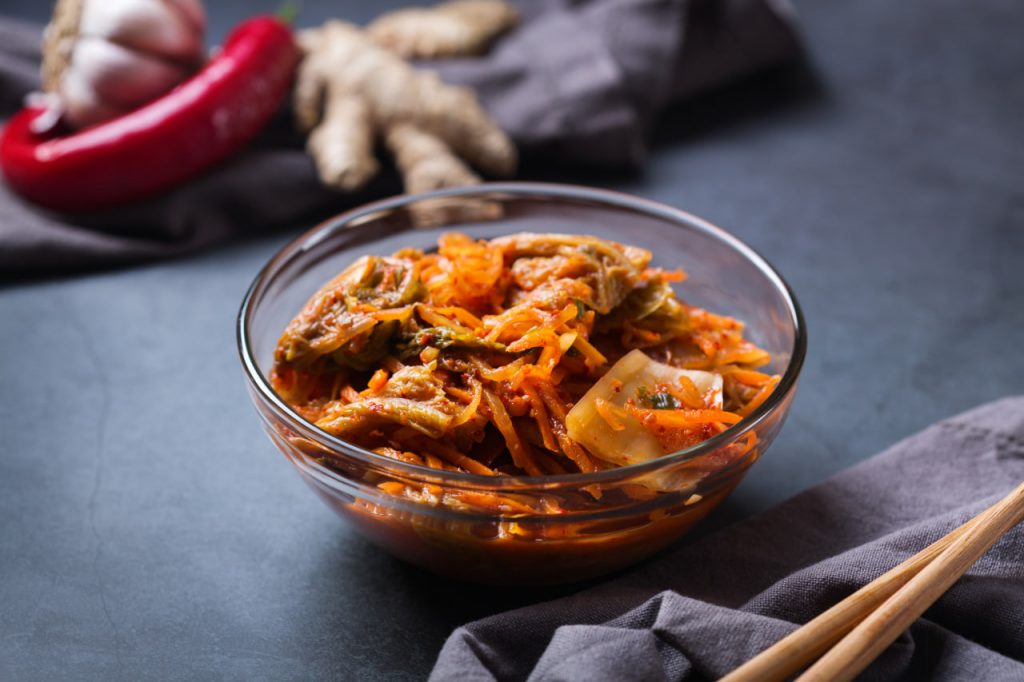As someone who loves to cook but is always looking to expand my culinary horizons, I’ve spent countless hours watching cooking shows, reading recipes, and experimenting in my kitchen. But despite all my kitchen adventures, I’d never ventured into the world of fermentation. It always seemed like an art reserved for experts. That is, until I decided to take a private fermentation course at Korean Fermented Kitchen.
What began as a simple desire to learn about kimchi quickly turned into a full-fledged journey into the fascinating world of Korean fermentation—one that was personalized, enriching, and transformative.
Tailored to My Interests
One of the most striking things about Korean Fermented Kitchen is their ability to offer such personalized courses. When I first signed up, I wasn’t entirely sure what I wanted to focus on. I knew I wanted to learn about kimchi, but I was also curious about other fermented staples of Korean cuisine, like gochujang (fermented chili paste) and doenjang (fermented soybean paste).
So, I reached out to the team and expressed my interest in learning these specific recipes. To my surprise, they didn’t just offer me a generic class. Instead, the instructor, Soojin, created a curriculum that was perfectly suited to my interests and experience level. She asked detailed questions about my cooking habits, what flavors I enjoy, and any challenges I’ve faced in the kitchen. With that input, she designed a personalized session where I would learn how to make both gochujang and doenjang—two essential elements of Korean cuisine.
Learning from a Passionate Expert
From the moment I met Soojin, I knew I was in good hands. She’s a true expert with a deep love for Korean food and fermentation, but what impressed me most was her ability to break down complex techniques into simple, easy-to-understand steps.
We began by discussing the different types of fermentation used in Korean cuisine. Soojin explained that fermentation is not just about making food last longer—it’s about enhancing flavors, promoting health, and preserving the integrity of the ingredients. This concept made me realize how deeply intertwined fermentation is with Korean culture.
As we dove into the practical side of the class, Soojin demonstrated how to make gochujang from scratch, explaining the science behind each ingredient. From selecting the right chili powder to balancing the sweetness of sugar and the depth of fermented soybeans, I learned how every choice influenced the final product. The process of slowly mixing and fermenting the paste felt like a ritual, one that allowed me to appreciate the patience and intention that goes into each batch of gochujang.
A Hands-On Experience Like No Other
What I appreciated most about this course was the hands-on experience. Soojin didn’t just talk about fermentation—she had me doing it! I was actively involved in every step, from preparing the ingredients to kneading the doenjang paste and shaping it into small, perfect balls that would ferment over time. There was something incredibly satisfying about the tactile nature of the process. I could feel the connection between the food, my hands, and the centuries-old traditions behind these dishes.
Making doenjang was particularly fascinating. The paste has such a rich, savory umami flavor that it almost felt like magic to create it from raw ingredients. Soojin explained how the fermentation process would slowly transform the soybeans into something that could elevate so many dishes—soups, stews, marinades, and beyond.
Even though I’d never worked with fermented ingredients before, Soojin’s detailed instruction and encouragement gave me the confidence to tackle these recipes at home. I left the class not only with my own jars of freshly made gochujang and doenjang, but with a deeper understanding of fermentation that I could apply to all my cooking.
The Personal Touch That Made It Special
What truly set this experience apart from other cooking classes I’ve taken was the personal touch. Soojin took the time to answer all my questions, from the best storage methods for fermented pastes to tips on how to incorporate them into my cooking. She even shared some of her favorite recipes for using gochujang and doenjang in everyday meals.
The personalized nature of this class made me feel like I wasn’t just another student—this was a one-on-one journey where my goals and interests were taken seriously. By the end of the class, I didn’t just feel like I had learned new recipes; I felt like I had gained a deeper connection to the food I cook and the culture it comes from.
Why You Should Try It
If you’re someone who has ever been curious about Korean fermentation but felt unsure about where to start, I highly recommend taking a personalized course at Korean Fermented Kitchen. The ability to tailor the class to your interests means you’ll be learning exactly what you want, whether it’s making traditional kimchi or diving into other fermented staples like gochujang and doenjang.
The hands-on approach, combined with Soojin’s expertise and genuine passion for fermentation, makes for an unforgettable experience. What you learn in these classes is more than just a set of recipes—it’s an exploration of culture, tradition, and the beauty of fermentation itself.
Since taking the class, I’ve been incorporating fermented ingredients into my cooking every week, and my dishes have never tasted more vibrant and authentic. I’m excited to continue exploring the world of Korean fermentation, and I owe it all to the personalized journey I started at Korean Fermented Kitchen.
If you’re considering learning about Korean fermentation, do yourself a favor and sign up for a personalized course. It’s an investment in both your culinary skills and your understanding of an ancient food tradition that’s both delicious and incredibly rewarding.

